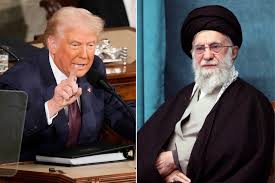
The United States and Germany have strongly condemned Iran’s decision to curtail cooperation with the International Atomic Energy Agency (IAEA), warning that the move threatens global nuclear non-proliferation efforts and narrows the path to diplomacy.
Speaking on Wednesday, U.S. State Department spokesperson Tammy Bruce labeled Iran’s action “unacceptable,” urging Tehran to meet its obligations under the Nuclear Non-Proliferation Treaty (NPT). She demanded full transparency, including unrestricted access to newly declared uranium enrichment facilities and answers regarding longstanding concerns about undeclared nuclear materials.
“Iran has a window of opportunity to reverse course and choose a path of peace and prosperity,” Bruce said.
Germany’s Foreign Ministry echoed the warning, calling Iran’s decision a “catastrophic signal” that could derail diplomatic efforts. Ministry spokesperson Martin Giese stressed the importance of sustained engagement with the IAEA. “For a diplomatic solution, it is essential for Iran to work with the IAEA,” he told reporters in Berlin.
The UN also voiced concern. Stéphane Dujarric, spokesperson for Secretary-General António Guterres, said the decision was “concerning” and reiterated the UN’s call for full Iranian cooperation with the nuclear watchdog.
Legislative Shift and Regional Escalation
The international criticism follows Iranian President Masoud Pezeshkian’s signing of a new law requiring that all future IAEA inspections be approved by Iran’s Supreme National Security Council. The legislation was passed shortly after the IAEA’s Board of Governors issued a resolution accusing Iran of failing to meet its transparency obligations under the NPT.
The development comes amid escalating tensions in the region. On June 13, Israel launched a 12-day military offensive targeting Iranian nuclear and military facilities. Several high-ranking commanders and nuclear scientists were reportedly killed. Iran has accused the IAEA of enabling the strikes by publishing sensitive information that Israel allegedly exploited.
In response, the IAEA said it is still awaiting official notification from Tehran regarding the new inspection restrictions. The agency emphasized the need for continued monitoring to ensure Iran’s adherence to its international commitments.
A Diplomatic Crossroads
Iran’s pivot toward reduced transparency raises alarm about the future of the global nuclear monitoring regime. The U.S. and Germany warn that any diplomatic breakthrough depends on Iran’s willingness to re-engage with the IAEA and rebuild international trust.
With geopolitical tensions flaring and diplomatic avenues narrowing, the international community is watching closely, hoping the opportunity for peaceful resolution is not lost.




